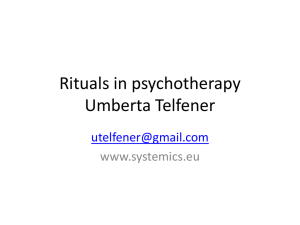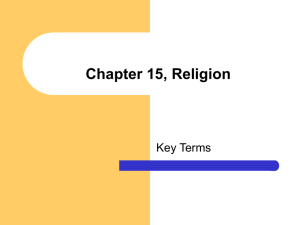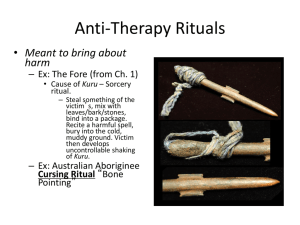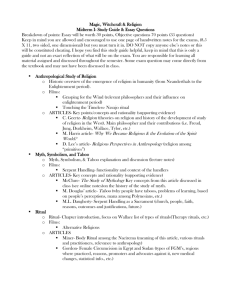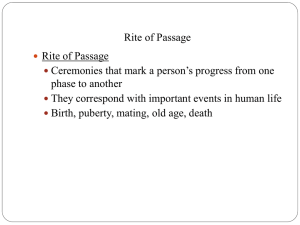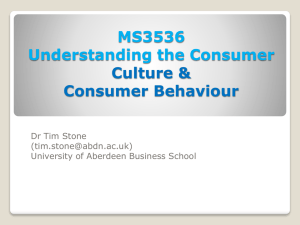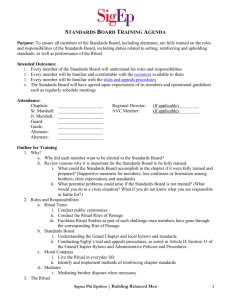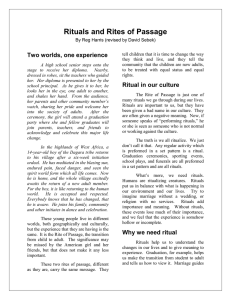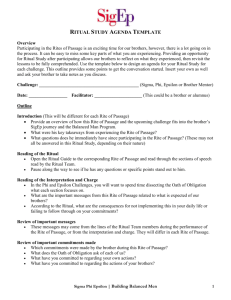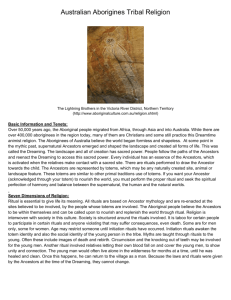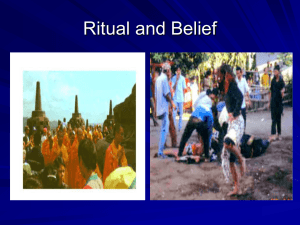Ritual and Rite of Passage
advertisement
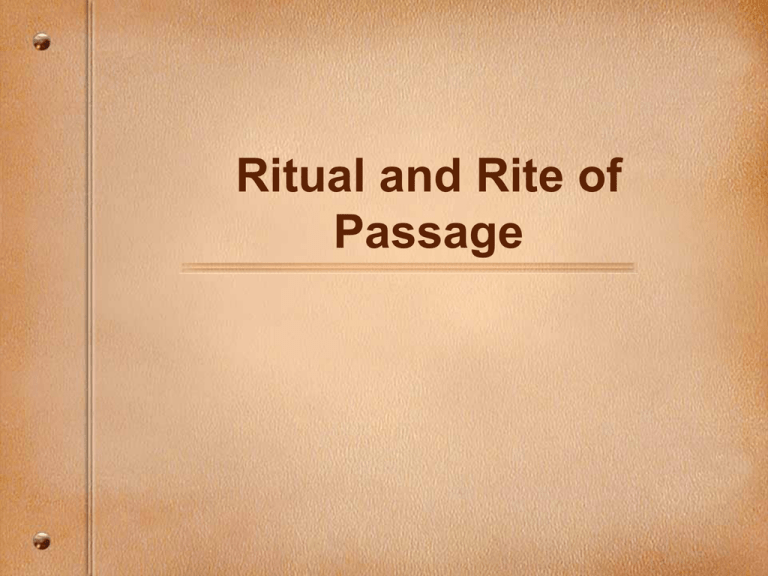
Ritual and Rite of Passage What is a ritual? • Any regular activity done in a set pattern • Autopilot that guides us through our daily activities, behaviors, attitudes and relationships What rituals can do • Tell us how to relate to and give meaning to experience • Aid or guide life’s transitions The difference between habit and ritual • A ritualized activity is habitual, but it serves a psychological purpose or need Everyday rituals • Greeting friends • Handshakes • Dress and behavior at a dance or a concert • Types of address used with a superior What are some rituals you have that … • Help you get ready for school? • Help you get ready for an athletic event, performance, etc.? • How does the ritual help? • What happens if your ritual is interrupted? What is the meaning of experience? • Experience is “polysemous” - it has many potential meanings - so it actually has no meaning until we give meaning to it • We make experience mean what we want it to mean However…for a culture to function • Certain experiences must have common meanings • Rituals help everyone understand, accept and follow standards, relationships or roles • Think of examples … Where common meanings apply • Getting your driver’s license • Graduating from high school • Getting married The Rite of Passage is … • A ritual that gives significance to the experience of becoming an adult • An essential step for the growth of individuals and communities The Rite of Passage has three stages • Separation • Initiation/transformation • Return Traditional cultures and rituals • Early people lived in harmony with the flow of life by using rituals … – To celebrate rebirth of the sun at the winter solstice, rebirth of life at the spring equinox – To install leaders – To prepare warriors – To send dead to next life Modern culture and rituals of transition • Where are the rituals to accompany these Rites of Passage? – Graduating from high school – Receiving driver’s license Military service as a Rite of Passage • Basic training = separation, producing a shift in consciousness • Close-knit team ready to follow orders = initiation/transformation • ????? = return? The psychological power of ritual • Harmonize our attitude toward a transitional situation • Prepare us to do something difficult or significant • Help us heal after a trauma or tragedy • Connect us with the “divine” Rituals can … • Emphasize and validate change • Help community acknowledge “initiate” as an adult No more Rites of Passage? • Do we have clear points of passage that separate the child from the adult? What happens without them? • The line between childhood and adulthood is blurred • “Child adults” (non-initiates) act without regard for how behavior affects the community that supports them • They may become dangerous to the common good • They do not realize that what benefits the community benefits them • They take support of society but do not give support in return Metaphors/symbols of rebirth • Cave (or other deep, dark place) • Water
